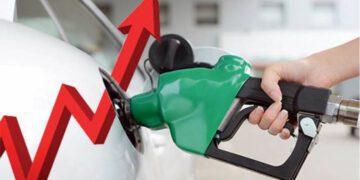LONDON: Britain will move up a ban on new petrol and diesel cars and vans to 2030 and is eyeing 250,000 new jobs as part of a green industrial revolution.
Prime Minister Boris Johnson made the announcement to meet Britain’s net zero emissions climate target. Johnson is seeking to show his government is on track to deliver manifesto promises after a tumultuous few days in which he was forced to self-isolate after coming into contact with someone with COVID-19, and his most senior adviser Dominic Cummings was ousted.
“Now is the time to plan for a green recovery with high-skilled jobs that give people the satisfaction of knowing they are helping to make the country cleaner, greener and more beautiful,” Johnson said in a column published in the financial magazine.
Britain last year became the first G7 country to set in law a net zero emission target by 2050, which will require wholesale changes in the ways Britons travel, consume energy and eat.
Johnson said the plan would mobilise 12 billion pounds of government money with as much as three times that amount coming from the private sector and create and support 250,000 highly skilled green jobs by 2030.
The new date for a ban on new petrol and diesel cars is five years earlier than a pledge of 2035 made by Johnson in February. The sale of hybrid cars and vans would be banned from 2035 under the new plan.
An extra 200 million pounds would create industrial clusters mustering technology to capture, store and use carbon dioxide emissions by the mid-2020s. Another two hubs are projected by 2030, taking the total investment in the technology to 1 billion pounds.
Johnson, who has promised to increase Britain’s offshore wind power to 40 gigawatts by 2030 from around 10 GW now, pledged up to 500 million pounds for projects trailing the use of hydrogen including for home heating and cooking. The government would also help to develop large and small scale nuclear plants.









![This handout photo released by the IRGC’s official Sepah News Telegram channel shows smoke billowing from a site bombed by Israel in Tehran early on June 13, 2025 [Sepah News/AFP]](https://mmnews.tv/wp-content/uploads/2025/06/Israel-attack-on-Iran-1-350x250.jpg)

![A satellite image shows the Natanz nuclear facility in Iran in this handout image dated January 24, 2025. [Photo/Agencies]](https://mmnews.tv/wp-content/uploads/2025/06/Iran-nuclear-site-350x250.jpg)



![This handout photo released by the IRGC’s official Sepah News Telegram channel shows smoke billowing from a site bombed by Israel in Tehran early on June 13, 2025 [Sepah News/AFP]](https://mmnews.tv/wp-content/uploads/2025/06/Israel-attack-on-Iran-350x250.jpg)

















